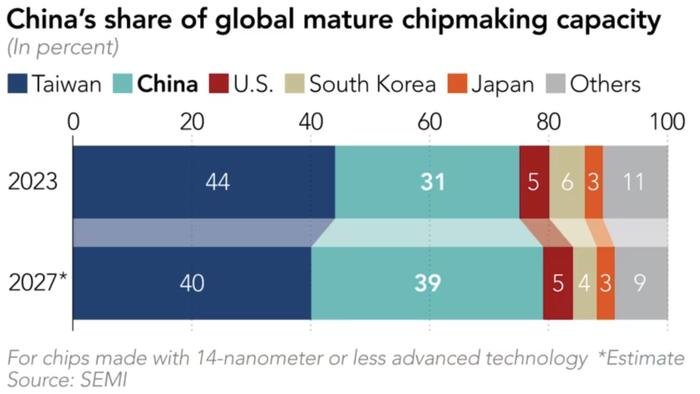China’s Push for Self-Reliance in Automotive Chip Production
China is making significant strides in dominating the global auto market, with a new focus on using domestically produced chips in their vehicles. According to a recent report from Nikkei, Chinese automakers like SAIC, Changan, BYD, Geely, Li Auto, and Great Wall are gearing up to launch models that exclusively rely on homegrown chips. By 2026, at least two of these automakers aim to start mass production with domestically made chips.
This shift towards using local chips is part of Beijing’s broader strategy to achieve semiconductor self-reliance, particularly in light of escalating tech tensions between the U.S. and China. The Ministry of Industry and Information Technology (MIIT) is leading the charge, urging both state-owned and private automakers to increase their usage of domestic chips. By 2027, the goal is for all automotive chips used in China to be 100% locally developed and manufactured.
While the transition to entirely domestic chip supplies poses challenges, Chinese automakers are steadily building momentum in this direction. Companies like GAC Group are collaborating with foundries such as SMIC and CanSemi to explore indigenous chip alternatives. The push for localization extends beyond chips to other components and materials, with a growing emphasis on sourcing from Chinese suppliers.
China’s electric vehicle (EV) manufacturers are also adapting by incorporating consumer-grade chips for noncritical functions like infotainment systems. This trend aligns with the broader localization objectives and cost considerations in the industry. As global chipmakers forge partnerships with Chinese foundries to localize production, the landscape of chip usage in cars is rapidly evolving.
Despite progress, China still has a significant distance to cover in achieving self-sufficiency in chip production. By 2025, only a fraction of the country’s integrated circuit (IC) market will be met by local production. However, projections indicate a substantial increase in China’s mature-node chip production capacity by 2027, positioning the country as a key player in the global semiconductor industry.
With China’s ambitious goals and strategic initiatives in semiconductor development, the automotive sector is poised for a transformative shift towards greater self-reliance and innovation in chip manufacturing.

